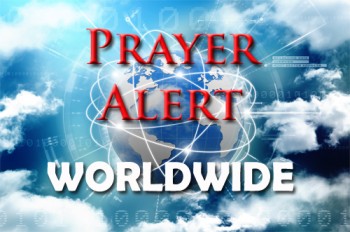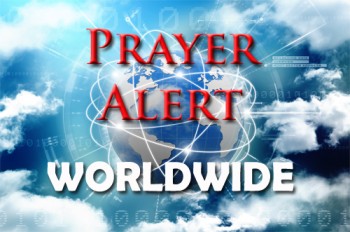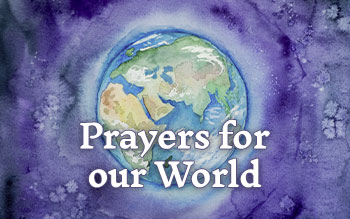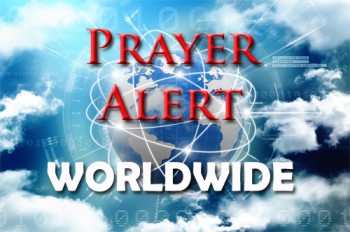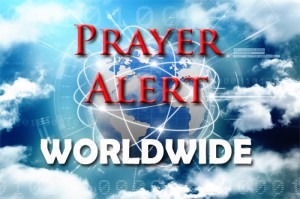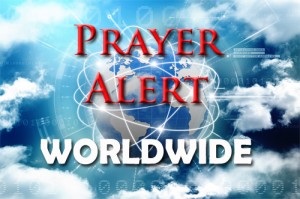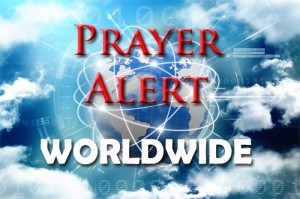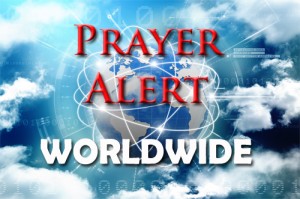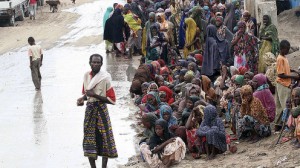Displaying items by tag: Humanitarian Crisis
St Vincent: volcano eruptions displace thousands
Volcanic eruptions on St Vincent have displaced about 20% of the Caribbean island’s population, as a UN official warned of a growing humanitarian crisis. Between 16,000 to 20,000 people were evacuated under government orders when La Soufrière volcano first erupted on 9 April, covering the island with ash that continues to blanket St Vincent, Barbados, and other islands. 6,000 of those evacuees are vulnerable. 20,000 risk food insecurity from loss of livelihoods in fisheries & agriculture. 4,000 are living in 87 government shelters, schools, churches and others are in hotels. Most of the water systems are shut down. Cots, sanitation, hygiene and emergency latrines are urgently needed. Ongoing explosions are causing new pyroclastic flows that could continue for weeks.
Floods cause humanitarian crisis
A humanitarian crisis is deepening in South Asia as new figures reveal that over 9.6 million people have been affected by monsoon floods, devastating large areas of India, Bangladesh and Nepal. Pray for the millions of people marooned in their homes, with crops destroyed by the worst floods in recent years. This year’s monsoon has come at the height of a deadly global pandemic. Tragically, already 550 people have lost their lives. Close to one third of Bangladesh has already been flooded, with forecasts of worse flooding in the coming days. Pray for God's comfort to be over those living in fear of worsening weather and deadly pandemic enemy. Pray for those mourning the death of friends and family killed by landslides, drowning and sickness. Pray also for the aid agencies and the various ministries of disaster management to have clear communication strategies to work in united support of the vulnerable.
Nigeria: shocking story of martyrdom
ABUJA, NIGERIA – Chuck Holton of CBN visited a refugee camp for people who have been internally displaced from their villages in the north and to the west. 'There are about 2.5 million internally displaced people within Nigeria, and that makes this one of the largest humanitarian crises in the world right now. And the thing that all of these people have in common is that they are Christians,' said Chuck.
Much of Boko Haram's terror is directed at Christians. Enoch Yeohanna was in a village invaded by them. "They started with burning churches, killing the pastors, and killing the members. Shutting them down," he said.
“On 29 September 2014 was the day that they attacked my village. Around ten I had a call that they have killed my dad. They asked him to deny Christ and when he refused they cut off his right hand. Then he refused [again], they cut to the elbow. In which he refused, before they shot him in the forehead, the neck, and chest," Yeohanna went on.
Many of the 1,500 Christians living in this camp have similar stories.
The Nigerian military has mounted large offensives against Boko Haram in recent months, and even with heavy losses on both sides, there seems to be no end in sight. Despite the hardships, these displaced Christians are firm believers in the power of prayer.
"If there is peace, there is nothing that will stop us from going there," Enoch Yeohanna said.
"My faith has helped my prayer life and I believe the prayers of the saints around the world have helped us make it through these tough times,"
Enoch's neighbour, Aisha Walla said -"My hope is that God will bring all those displaced back to their homes so we can worship God together and live in peace."
Pray: for the thousands of families displaced in this disaster, largely Christian – that they will find strength to endure these times of hardship and that they will soon be able to return to their homes safely.
Pray: for those living with the traumas and shocking memories, for healing of their minds and peace.
Pray: that those aligned with Boko Haram will find Jesus, repent and turn from their wicked ways.
Iran: disastrous floods, rising death toll
Over sixty people have died following floods across Iran. 78 intercity roads are blocked, 2,199 rural roads and 84 bridges have been washed away. 141 rivers burst their banks, and 400 landslides were reported. Floods have damaged nearly 7,500 miles of roads (36% of the country’s network). Government and aid agencies came under severe criticism for their efforts being too small in scale and unable to cope with the acute needs of tens of thousands of flood victims. Emergency services sent four helicopters to Pol-e Dokhtar because land routes to the city are cut off. Many people are in tents. A parliament member warned President Rouhani, ‘People facing a tragedy urgently need food, drinking water, medicine and warm clothes’.The lack of order and planning is widespread. Pray for the thousands sheltering in the open with little food, clean water or warm clothes in often rainy weather.
Yemen: UN warnings ignored
The UN has said that, in a worst-case scenario, as many as 250,000 people could be killed in a new offensive against Hodeidah, currently under the control of Iran-backed Houthi rebels. The city is a lifeline for the country's war-ravaged population. 90% of food, fuel and medicines in Yemen are imported, with 70% coming through Hodeidah. On 12 June an offensive against the city started at dawn. Yemen's information minister hailed it as ‘the beginning of a complete victory to liberate Yemen's territory all the way to the capital of Sanaa.’ The Saudi-led coalition, including the UAE, has been in a virtual stalemate with the Houthis since March 2015. The Houthis use the port to raise revenues through looting, extortion, and illegal taxation imposed on commercial ships to finance and sustain their military aggression against Yemen and neighbouring countries. Observers say that if the Houthis dig in this could be a bloody street battle, comparable to Aleppo.
Worsening violence in CAR
Violent flare-ups in Central African Republic (CAR) have sent thousands fleeing for their lives. The UN said that over 5,000 refugees have arrived in southern Chad since 27 December, fleeing from north-western CAR. Over 75,000 people were already in camps before the recent influx; many walked long distances to escape violence. Although the border is officially closed, as a humanitarian gesture authorities are allowing refugees to cross. Widespread human rights abuses are being reported, and UNHCR said that over 1.1 million people have been displaced, both within the country and as refugees. Because of the fighting, Médecins sans Frontières (MSF) has had to suspend its work in the seven health centres in outlying districts of Paoua. An estimated 30,000 who fled dangerous outlying areas are now taking refuge in Paoua. See
Antigua and Barbuda: a huge crisis
A humanitarian crisis is developing on Antigua as a result of the devastation wreaked on Barbuda by Hurricane Irma, according to Prime Minister Gaston Browne. He told the UN General Assembly, ‘Overnight Antigua’s population increased by almost 3%. I know of no country that could easily cope with such an unplanned and unexpected increase in its population.’ In addition to providing shelter, accommodation, and basic necessities to the evacuated Barbudans, Antigua’s social services need to provide school places for an additional 600 children; medical services for many elderly; and a means of income for the able-bodied. Preliminary estimates place the cost of rebuilding Barbuda at £185 million - over 15% of the country’s GDP. The PM said it was a stretch beyond their reach: ‘Barbuda is not only a natural disaster, it is a humanitarian crisis that now consumes Antigua.’
Yemen: cultural capital of conflict
The city of Taiz has 2.4 million people, living in tragedy resulting from the two-year war. The city is important geographically, as it lies between the southern provinces, controlled by Hadi’s forces, and the northern provinces which are controlled by former President Saleh’s forces and the Houthis. Also, its southwestern coast overlooks the strategic Bab al-Mandab Strait, which sees one-third of the oil trade every day. Taiz has become central to the Yemen conflict, and militants are increasingly interested in controlling it. It has become a city ravaged by war and the Houthi blockade. Disease and malnutrition threaten people’s lives. Public employees’ salaries are cut, it is difficult to get relief aid to the displaced and afflicted, and living conditions are going downhill. People have fled to temporary settlements or camps, without access to sanitation or basic needs.
UN: World Faces Largest Humanitarian Crisis Since World War II
The world is facing its largest humanitarian crisis since 1945, according to the United Nations.
“We stand at a critical point in history. Already at the beginning of the year we are facing the largest humanitarian crisis since the creation of the UN,” UN Emergency Relief Coordinator Stephen O’Brien told the UN’s Security Council last week.
While many countries worldwide face food security crises, with large numbers of people hungry and unable to find enough food, only rarely do the conditions meet the humanitarian community’s formal criteria for a famine, says the UN.
The UN declares a famine only when the following measures of mortality, malnutrition and hunger are met: at least 20 percent of households in an area face extreme food shortages with a limited ability to cope; acute malnutrition rates exceed 30 percent; and the death rate exceeds two persons per day per 10,000 persons.
Other factors that may be considered include large-scale displacement, widespread destitution, disease outbreaks and social collapse.
Currently five countries are facing or are at risk of famine—Kenya, Yemen, South Sudan, Nigeria, and Somalia. Here is what you should know about each of these countries:
Yemen
Number of people facing severe food insecurity: 14.1 million
Cause of crisis: Famine caused by armed conflict
What’s preventing aid: Continuing fighting, lack of rule of law, poor governance, and under-development. As the BBC notes, a naval embargo imposed by the Saudi-led coalition, fighting around the government-controlled port of Aden and air strikes on the rebel-held port of Hudaydah, have severely reduced imports since 2015.
UN assessment: “I continue to reiterate the same message to all: only a political solution will ultimately end human suffering and bring stability to the region,” said O’Brien. He also noted that with access and funding, humanitarians will do more, but cautioned that relief-workers were “not the long-term solution to the growing crisis.”
South Sudan
Number of people facing severe food insecurity: 4.9 million
Cause of crisis: Famine caused by armed UN officials have suggested the conflict that borders on genocide.
What’s preventing aid: Some South Sudan government is blocking food aid to certain areas and that humanitarian convoys and warehouses have been attacked and being looted, either by government or rebel forces.
UN assessment: “The famine in the country is man-made. Parties to the conflict are parties to the famine – as are those not intervening to make the violence stop,” said Mr. O’Brien, who called on the South Sudanese authorities to translate their assurances of unconditional access into “action on the ground.”
Somalia
Number of people facing severe food insecurity: 2.9 million
Cause of crisis: Famine caused by armed conflict.
What’s preventing aid: According to BBC news reports, people are so busy trying to survive that they are unable to earn a living by going to work, farming or looking after their animals.
UN assessment: “The current indicators mirror the tragic picture of 2011, when Somalia last suffered a famine,” said O’Brian, who added that a famine could be averted with “strong national leadership and immediate and concerted support by the international community.”
Kenya
Number of people facing severe food insecurity: 2.7 million, but could soon increase to 4 million
Cause of crisis: Drought associated with the ongoing El Nino weather phenomena.
What’s preventing aid: Government incompetence and an inflow of refugees from Ethiopia.
UN assessment: “In collaboration with the Government [of Kenya], the UN will soon launch an appeal of $200 million to provide timely life-saving assistance and protection,” said O’Brian. But he adds that about $1.5 billion is required to provide the assistance needed across the region.
Nigeria
Number of people facing severe food insecurity: The estimated number of affected children is now 450,000, with 14 million people needing humanitarian assistance across the region.
Cause of crisis: Famine caused by armed conflict.
What’s preventing aid: Terror attacks byBoko Haram, lack of rule of law, under-development, and possible widespread aid theft.
UN assessment: The UN predicts Nigerians likely will suffer "catastrophic" famine-like conditions caused by Boko Haram's Islamic uprising.
The Weekly <This email address is being protected from spambots. You need JavaScript enabled to view it.>
Please pray for the United Nations and its aid efforts for these nations undergoing enormous suffering. Pray for the over 30 million people in these nations who are affected by severe food insecurity and for His provision of funding for food as well as for long-term solutions
